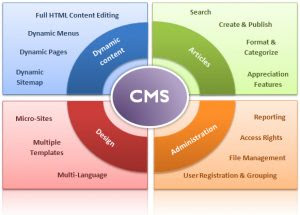Running your own ecommerce businesses is not as easy as it might seem in the very first instance.
To start and run a successful ecommerce business, you will need a full-proof marketing campaign that aligns with the business goals you want to achieve.
There are several common mistakes that ecommerce store owners make when it comes to marketing, especially those who are new in business!
If you want to ensure maximum growth and sales, you have to think about your overall marketing approach right at the onset.
E-commerce has become the ‘new normal’ in the world of retail business. This makes the ecommerce market highly competitive.
Hence, one silly mistake in your marketing strategies can make or break the future of your ecommerce business.
Let’s take a sneak peek at the most common mistakes in eCommerce Marketing.
#1. Not Knowing Your Target Audience
Every successful digital marketing campaign begins with in-depth customer research. You have to know who your target customers are, what they like, what they need, what they are looking for.
Ecommerce store owners need to be clear about who their clients are and accordingly align their marketing efforts to drive as much traffic to their website as possible.
#2. Trying to build an online store on your own
Many new ecommerce store owners try to do everything by themselves, instead of hiring an ecommerce development company or agency.
Being self-sufficient is good, because it gives you flexibility. But if you’re not an expert in ecommerce development, you can end up making adverse mistakes.
The best option is to hire an expert ecommerce development company like AchieveX and let them do the work, while you can focus on more important business decisions.
The experts will study your store requirements and choose the development platform that is suitable for building your store.
There are several experienced ecommerce developers that come with varied skill sets and offer services at reasonable prices.
Agencies like AchieveX Solutions can deliver the perfect ecommerce store suited to your business-specific requirements.
#3. Extremely wide range of products
Starting your ecommerce store with too many products all at once can be a dicey approach. It would be wise to begin selling fewer products when you just start out.
Once you get the hang of it, you can keep adding more products as your business expands.
#4. Not focusing on Average Order Value
Another common mistake made by new ecommerce store owners is focusing too much on the sales funnel and focusing too less on the average order value.
Consider the costs of marketing for each new customer and focus on the average order value.
#5. Poor product descriptions and unoptimized images
“A picture speaks a thousand words” isn’t it?
If you share poor quality product images on your ecommerce store front and product listings, online buyers will conclude that your product quality is just as poor as the image quality.
Inconsistent product descriptions or insufficient product description can drive your potential customers away from your ecommerce store to your competitors.
Online shoppers look at everything before they make a purchase.
Beginning from your product images and descriptions to reviews and ratings, they will consider all the information before they buy even the smallest product from your ecommerce store.
Hence, it is important that you hire a professional content writer and also a professional photographer, to make your product images and descriptions look appealing, genuine, and comprehensive.
#6. Wrong Pricing
The pricing is a tricky aspect of any business. Getting the pricing right is not going to be a piece of cake for you!
If you set a pricing that is too low, as compared to your competitors, your potential customers will associate the low price with poor product quality.
On the contrary, if the prices are too high, customers will consider it unreasonable and arbitrary.
#7. Ignoring mobile users
Everybody is using a smartphone. Mobile users are all over the web looking for information on the go.
A large part of the potential customers for ecommerce businesses are mobile users.
#8. Poor Marketing
Creating content is just the first step, but making sure that people read your content can be a real struggle!
No ecommerce business can afford a poor marketing strategy because the consequences are only derogatory.
source-google
Marketing helps you to sell and generate profits, and you don't want to sabotage the future of your business by making such irrelevant mistakes.
When your goods satisfy the need or desire of your target customers, it is important that you don't just stop at selling.
If you want your products to cater to the needs of more customers, you have to keep your voice consistent so that they never forget about your offerings.
Choosing the right CMS is extremely important. Content is King, and it always will be, no matter how digitised the world becomes.
So, you should never compromise on quality when it comes to your content management requirements.
But don't compromise on the quality just because it’s expensive. A poor CMS platform can actually result in more losses for your business.
Choose a user-friendly CMS platform that allows you to scale your website up or down based on your demand and sales.
#10. No Contact Information
Irrespective of what you are selling on your online store, customers tend to trust businesses that are easily accessible in case any problem arises.
Hence, sharing your contact information on your ecommerce website is more than just important. It is essential.
Queries could be about different issues relating to product quality, delivery, shipping, and more.
Your customers should easily be able to reach out to you with their queries.
Zero contact information makes customers doubt the authenticity of your ecommerce business.
#11. Forgetting About the User Experience
Hence, online shoppers have a wide range of options to choose from when buying online.
If your website does not look professional and organised, if your website does not load fast, your potential customers will simply turn their back on your website to turn towards your competitor websites.
Build a website that looks familiar and offers a seamless user experience, right from the time when your potential customer enters your website till checkout. The keynote here is to make the shopping experience as simple, as convenient, as fast, as possible.
#12. Lacking social proof
Social proof is the most significant criteria that consumers today use to determine the position of any business online.
Customers want to know what other customers have to say about your product. This helps them make a decision.
Hence, make sure to display customer reviews and comments on your ecommerce website, because that acts as a social proof for your online business.
Online shopping does not give customers the opportunity to hold and feel the products they are going to buy. Hence, it is important that you share as much product information as possible, especially visual.
Encouraging customers to share product images when they make a purchase from you can be a good marketing tactic to generate social proof.
#13. Not Analyzing Your Data
Your marketing campaigns and strategies are of no use if you don’t collect or analyse data.
Why? Until and unless you track and analyse the results that you have generated with your marketing efforts and activities, you will never be able to identify the loopholes and mistakes in your marketing campaign.
You will see that your efforts are not generating the desired results, but you will never be able to identify the exact reason behind the failure until you analyse your data.
Is your content getting sufficient reach? Are your ads reaching out to the right customers? Is your monthly sales generating enough profits?
Data Analytics is the answer for all your questions.
Are you one of the new ecommerce business owners who may be making these common mistakes? Then you have landed on the right piece of content! Hope we have been able to address all your pain points when it comes to starting your own ecommerce business.
Feel free to share your valuable inputs in our comment section below.
Every suggestion counts! For more information on e-commerce solutions and development, contact AchieveX Solutions.












